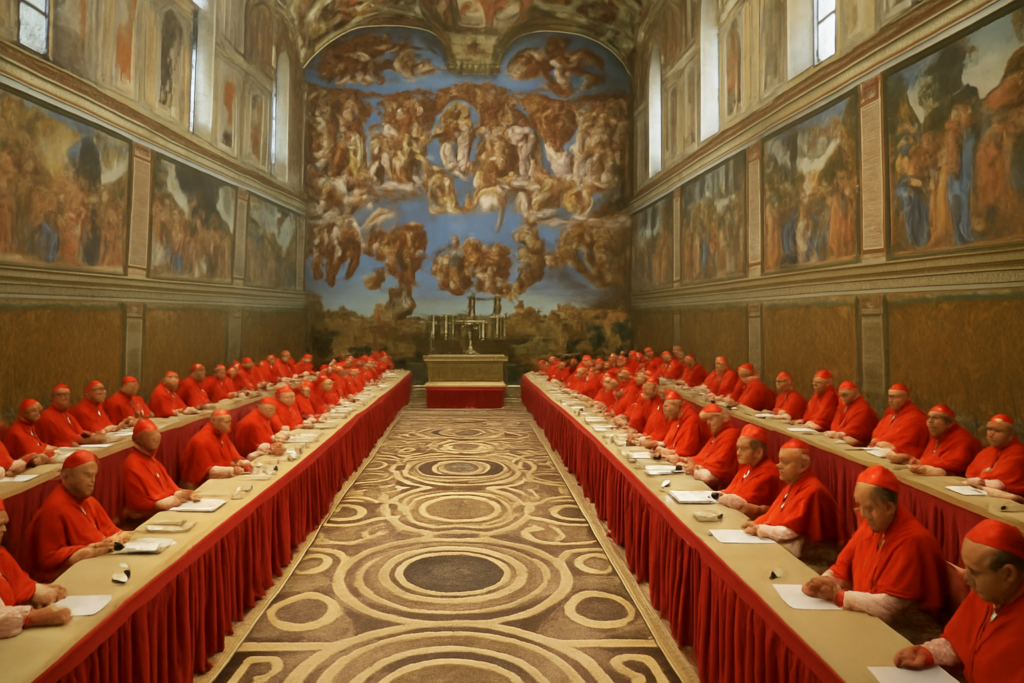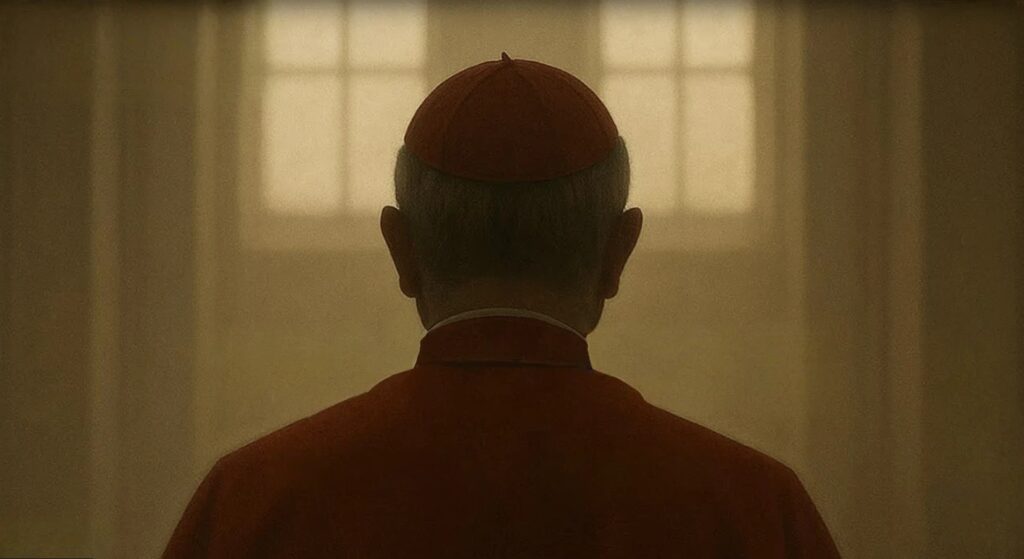The 12 General Congregations: Discernment and Call for Peace Before the Conclave
The cardinals examined the Church's global challenges and outlined the future Pope in a climate of prayer and responsibility

The College of Cardinals completed an exhaustive discernment process with 12 General Congregations, held in the Vatican’s Synod Hall. These meetings, which preceded the imminent Conclave, allowed the 133 cardinal electors to analyze the Church’s main challenges and reflect on the profile of the next Pontiff, culminating in a powerful call for world peace.
1. First General Congregation: Arrival and the Beginning of the Process
With the arrival of the cardinals in Rome, the first congregation took on a formal character. The electors’ credentials were verified, the Conclave regulations established in the Apostolic Constitution of the University of Dominici Gregis were recalled, and the absolute confidentiality of the deliberations was emphasized.
The Cardinal Dean presided over the initial session, during which the meeting schedule was established and the working documents were distributed.
2. Second Congregation: The Church’s Global Challenges
In this session, the cardinals shared a global overview of the Church, highlighting:
- Religious persecution in countries such as Nigeria, China, and North Korea.
- Accelerated secularization in Europe and North America.
- Growth in Africa and Asia, where vocations are increasing, but the Church faces political pressures.
The need for more incisive evangelization, adapted to each cultural context, was emphasized.
3. Third Congregation: The Reform of the Roman Curia
The Apostolic Constitution Praedicate Evangelium was one of the focal points of the debate. The cardinals evaluated:
- Progress in the decentralization of the Vatican.
- The efficiency of the new dicasteries, such as the Department of Evangelization.
- Financial transparency, following the scandals of previous years.
Some cardinals called for greater agility in administrative processes.
4. Fourth Congregation: Synodality and the Future of the Church
Following the Synod on Synodality (2023-2024), the following were discussed:
- How to implement a more participatory government.
- The balance between tradition and renewal.
- The reception of the Synod in the dioceses.
There was consensus that synodality should strengthen ecclesial communion.
5. Fifth Congregation: The Protection of Minors and Ecclesial Justice
One of the most sensitive topics was sexual abuse. The cardinals reviewed:
- Advances in prevention protocols.
- The need for greater transparency in canonical processes.
- Support for victims and the Church’s moral reparation.
6. Sixth Congregation: Ecumenism and Interreligious Dialogue
Discussed were:
- Rapport with the Orthodox Church.
- Relations with Islam and Judaism.
- The importance of Christian unity for world peace.
7. Seventh Congregation: The Vocation Crisis and Priestly Formation
The cardinals proposed:
- Renewing vocation ministry.
- Improving seminaries.
- Promoting the priesthood in Africa and Asia.
8. Eighth Congregation: Poverty, Migration, and Social Justice
Following the teaching of Pope Francis, the following were analyzed:
- The role of the Church in the face of inequalities.
- The migration crisis.
- Integral ecology.
9. Ninth Congregation: Financial Transparency and Economic Reforms
The following were reviewed:
- The progress of the Auditor General’s Office.
- The management of the IOR (Vatican Bank).
- The economic sustainability of the Holy See.
10. Tenth Congregation: The Profile of the Next Pope
In the last formal meeting, the cardinals shared their reflections on the qualities the new Pontiff should possess:
- A close pastor.
- A man of dialogue.
- A prudent reformer.
- A missionary with a global vision.
11. Eleventh General Congregation: Final Preparations Before the Conclave
According to Vatican News, this meeting, held on Monday afternoon, had a more operational nature:
Final verification of the cardinal electors present.
Review of the Conclave rules, including the oath of secrecy.
Room layout at the Domus Sanctae Marthae, where they will stay during the Conclave.
Liturgical details, such as the Mass Pro Eligendo Pontifice prior to the start of the Conclave.
In addition, the importance of avoiding external influences was recalled, and the prevailing climate of prayer and recollection was emphasized.
12. Twelfth General Congregation: The Legacy for the Future Pope
This final session also included:
Overall review of all previous discussions: 26 speeches were delivered, focusing on key themes such as the need for continuity in Pope Francis’ reforms (fighting abuse, transparency, synodality, peace, and ecology), the profile of the next Pope as a close pastor and spiritual guide, and the importance of ecclesial communion. Canonical issues, internal divisions, the World Day of the Poor, the strengthening of the College of Cardinals, Christian formation, the memory of the martyrs, climate change, and ecumenical dialogue were also discussed. The congregation concluded with an appeal for world peace, the annulment of the Fisherman’s Ring and the Seal of Lead, and practical arrangements for the Conclave. No further General Congregations will be convened.
- Summary of priorities: peace, reforms, evangelization
- Formal presentation of key documents to the future Pontiff
- Collective prayer for the assistance of the Holy Spirit
A historic moment of discernment
These twelve General Congregations have been a space for profound dialogue and prayer, where the cardinals have examined the challenges of the Church and the qualities needed for the next Pope.
With everything prepared, the cardinals prepare to enter the Conclave, where, guided by the Holy Spirit, they will elect Peter’s successor.
Related

The Conclave: Procedure and Norms for the Election of the Pope
Exaudi Staff
07 May, 2025
6 min

Inside the Conclave: The Pope’s Election as Never Told Before
Exaudi Staff
05 May, 2025
6 min

Francis II. Vineyards and Servants
Luis Herrera Campo
05 May, 2025
4 min

Francis II. Prayer Retreat
Luis Herrera Campo
03 May, 2025
4 min
 (EN)
(EN)
 (ES)
(ES)
 (IT)
(IT)


